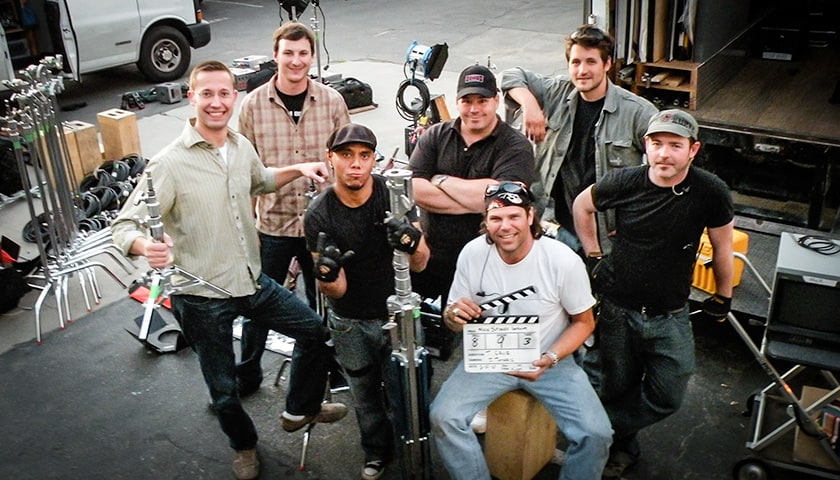We’ve all been on productions that seem to never end. 12-hour days turn into 14-hours, which turn into-16 hours. The shoot runs late into the night with no signs of ending, and everyone on the cast and crew is exhausted. Driving your crew into the ground is not only counter productive, it’s also dangerous.
Many non-union directors spend months – if not years – developing a project. For them it’s a massive commitment of time and money, all enveloped by the pressure that that project could make or break their career. To the crew, it’s just another gig. Many of the crew members came from a previous project and are going to begin work on another one, so constant late nights, bad food, or unhealthy working conditions take their toll very quickly.
As a producer, its important to maintain basic safeguards to ensure crew safety not only on set, but to and from it as well. If you if you know you are going to be shooting late, consider the following practices to ensure a safe set.
- Hire a wrap crew – If you’re shooting long hours, consider bringing in a second crew to help wrap up, restore the location, strike the set, and pack production equipment so that the main crew can leave on time. While this may seem like a luxury for larger budget projects, you can approach colleges and trade schools for production assistants and Interns who may be willing to invest their time.
- Limit the length of each shooting day – Avoid shooting over 12 hours per day. The law of diminishing returns states that the longer the work day, the lower the quality of work. When you start shooting past 12 hours, actors and crew get tired, morale drops, accidents happen, and overall productivity drops. You may “make your day,” but how good is the material you shot?
- Ensure 12-hour turn around – Turnaround time is the time allotted from the end of a production day to the next day’s call time. Twelve hours is the recommended time to allow cast and crew the chance to drive home, sleep and prepare for the next day. Many professional crew members expect 12-hour turnaround and may be hesitant to join a production is turnaround is any less.
- Get hotel rooms – If shooting runs late and/or the location is too far for a reasonable commute, consider booking hotel rooms for the cast and crew. it’s better to spend the money on cheap accommodations than risk an accident.
- Second meal – Always provide a second meal for the cast and crew at the 12-hour mark in a production. The meal will not only help give everyone a boost, but follows industry-standard guidelines for meal breaks every 6 hours.
- Show Dailies – Bring in dailies (the footage already shot) to show the cast and crew to help motivate them, especially if you have long shooting days. When people can see the fruits of their efforts, it always helps boots morale and re-ignite the excitement on set.
- Pay overtime – If you can’t afford to pay overtime, show a gesture of appreciation like giving everyone a coffee gift card, especially if they are working for free or at a discounted rate. Small tokens of your appreciation are a great way to thank the cast and crew!
Overall, safety is the most important concern. A tired crew won’t give you their best work, and will be a danger to themselves and others. Always treat the people working with you well, and they will give the best they can to your and your production.


